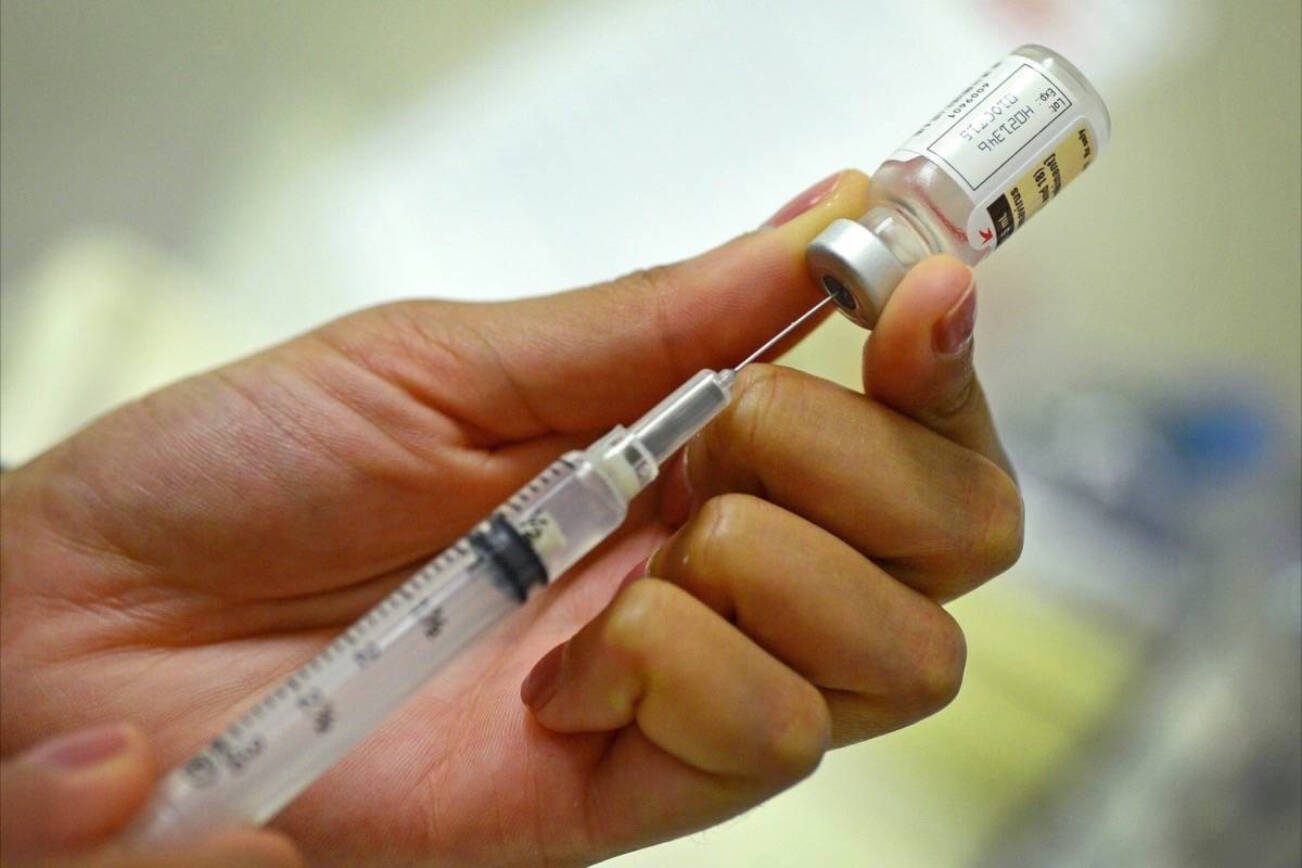EVERETT — A Snohomish County adult has been identified with measles, the health departments from King and Snohomish Counties announced Tuesday.
The case of measles, the second confirmed in the state this year, was identified Monday. The first case of measles was confirmed in an infant on Feb. 26 in King County.
Health departments in King and Snohomish County assessed potential public exposures while the individual was contagious and found there is no risk of measles to the general public from the latest case, the departments announced in a release Tuesday.
“Without the rapid response from public health departments to conduct contact tracing to identify susceptible individuals, we could have seen significantly more cases,” Snohomish County Health Officer James Lewis wrote in a release.
Measles is a highly contagious disease that causes fever, rash, coughing, a runny nose and watery eyes. If one person has it, up to 90% of people nearby will be infected without protection, the departments wrote. Measles spreads through the air after an infected person coughs or sneezes.
Symptoms begin 7 to 21 days after exposure, the departments said. It is contagious from about four days before the rash appears through four days after it appears.
Once a widespread and ubiquitous disease that infected 3 to 4 million people per year, the implementation of a measles, mumps and rubella vaccine largely eliminated measles in the United States by 2000. But annual cases have increased since 2024, CDC data shows. A total of 301 confirmed cases have been confirmed nationwide as of March 19, according to CDC data. Ninety-five percent of those cases are in people who are unvaccinated.
Those at the highest risk of complications from measles include infants and children under 5 years old, adults over 20 years old, pregnant people and people who are immunocompromised.
The measles, mumps and rubella, vaccine is 97% effective at preventing measles and the protection is long-lasting, the departments said.
“While there are some prevention steps like immune globulin and the MMR vaccine that can prevent infection when given promptly after exposure, supplements like vitamin A, cod liver oil, or other alternative remedies will not stop measles from spreading.” Lewis wrote. “Measles exposure in the community puts vulnerable people—especially infants, pregnant individuals, and those with weakened immune systems—at serious risk. Measles is highly contagious, but also highly preventable with vaccination, and ensuring people are fully immunized remains our best defense.”
Will Geschke: 425-339-3443; william.geschke@heraldnet.com; X: @willgeschke.
Talk to us
> Give us your news tips.
> Send us a letter to the editor.
> More Herald contact information.

























